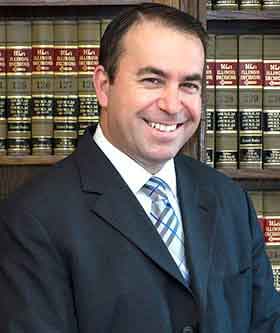Glossary Of Common Family Law Terms
When you hire the trusted attorneys at LeVine Ehrman Ltd., we work diligently to ensure you understand every aspect of your case, including the legal terms being used. This glossary may help you understand the terms you are not familiar with. If you have questions or want to learn how we can help you, contact us at 708-840-7779 for a free consultation.
Alimony, maintenance and spousal support are legal terms for payments, usually made monthly, from one spouse to the other, often for a certain number of years. Payments may be ordered on a temporary basis during the pendency of the divorce. They may also be permanent obligations. At present, in most states, spousal support payments are used as a means of increasing income for those spouses whose circumstances have kept them out of the workplace for a significant period, or to maintain the standard of living when one party makes significantly more than the other.
Child support is a phrase that refers to the amount of money one parent pays to the other to help support their common children when the parents are not living together. The current state of the law takes most of the contention out of the child support issues. Child support guidelines in most states make it primarily formulaic to determine who is ordered to pay support, and in what amount.
Parenting time and allocation of parental responsibilities are terms used when determining the amount of time children spend with each parent and how the decision-making authority for significant issues is assigned. For instance, a parent may have equal right to share in making decisions such as in what religion will the children be raised, what schools they will attend, whether or not they may get their driver’s license, join the military or get married. Some parents may have the children physically with them as little as every other weekend but still equally share authority in these decisions.
Divorce or dissolution of marriage is the term for the process by which the union of two people is terminated. It may also establish their right to remarry, distribute their property between them according to the law of the state in which they reside, determine whether either party will pay spousal support and if they have children, with whom the children shall live and whether one party will pay child support.
Domestic violence is sometimes referred to as intimate partner violence because it is not limited to parties living together. Domestic violence is the control of another through physical, verbal, emotional, psychological and spiritual abuse. Intimate partner violence figures broadly in many family law issues, including child custody and visitation. Studies have shown that the period between initial separation and divorce can be the most dangerous for victims of domestic violence and their children.
Prenuptial agreement is a legal term for a contract entered by parties still contemplating marriage setting forth their intentions on how their individual property will be divided should they ultimately separate. If not patently unfair to one party, most prenuptial agreements will be enforced in court so long as the court is convinced the parties entered into the agreement with full disclosure and no coercion, and if the deal does not create a hardship on either of the parties.
Community property is a legal term that describes the law in some states setting forth the prescribed division of that property that was acquired by the parties, either individually or as a couple, and includes the income of the parties. Some states divide community property equally. Others first decide what constitutes community property and then make an equitable division of the property. Illinois is not a community property state.
Equitable division is a term that describes the law in most states that provides a process for the division of property of the parties. Considering all the circumstances of the parties, the division of property is completed according to the equities of those circumstances.
Let Us Answer Your Questions In A Free Consultation
If you have questions about any of these legal processes or are seeking help with your family law case, do not hesitate to reach out to our team of lawyers at our main office in Tinley Park, Illinois. Use our easy online contact form, or call us at 708-840-7779.

